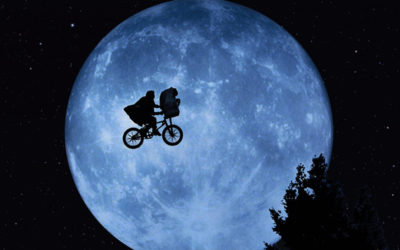Source: The Ringer
There’s a certain irony in how unsurprising it has become for the Academy Awards to throw in a handful of new surprises, both intentionally and unintentionally, with each most recent awards ceremony. Going into this year’s ceremony, there was already much speculation as to how the event will be arranged and how certain awards will be handed out. Not only was the 93rd Academy Awards pushed back by almost two months to April 25th, 2021 as a result of the ongoing COVID-19 pandemic, but the main venue was also changed, switching from the Dolby Theater in Hollywood (which had held the grand majority of Oscars ceremonies over the past few decades) to the Los Angeles Union Station, the city’s main railway station and one of the largest in the United States. With such a different setting to work with, Oscars producers had their work cut out for them when it came to producing a ceremony like no other, and for better or worse, they certainly did just that.
What’s most interesting about this year’s ceremony was how streamlined the event’s organization was. For the most part, very little occurred throughout most of the three-and-a-half hour apart from handing out the multiple awards and the speeches that followed. Even Regina King, who was the first presenter of the evening, had nothing preceding her before she stepped onto the main stage, almost immediately beginning to discuss the nominees for Best Original Screenplay, the first award given that evening. Considering how often the Oscars have been criticized for trying to overextend the proceedings with entertainment bits that have often been referred to as superfluous and even gimmicky, there was much to appreciate about how much the ceremony tried to restrict itself to the bare minimum.
Unfortunately, it didn’t take long for people to start taking issue with how the whole ceremony was being presented. For one thing, with some exceptions, very few of the awards being given were accompanied by images or clips of the films being nominated. Not only did this make it difficult for some people to tell which films they needed to be aware of, but for many of the technical categories that would usually require some visuals so that viewers could understand what field of filmmaking was being awarded (such as Best Cinematography and Best Visual Effects), the lack of visual aid resulted in few of the nominees’ work being showcased to demonstrate why they were at least nominated for a particular award.
Then there was the In Memoriam montage; while there were few complaints about those who were included (ending with the image of the late Chadwick Boseman proved to be especially poignant for many), the montage appeared to go by much too fast for several viewers to fully appreciate or even notice who was being commemorated in the montage. It’s possible that time was a concern for Oscar producers, which may explain why the montage went by faster than most would’ve liked, but that possibility became a bit less feasible when “Get Out” actor Lil Rey Howerey playing a game of “Name That Tune” with some of the celebrities attending the ceremony, which culminated in Glenn Close singing along to the song “Dat Ass”. Not only did this go against the ceremony’s plan to keep to the bare minimum (coming across as the very same type of gimmick that they seemed to be trying to avoid up to that point), but many argue that the time would’ve been much better spent if it was given to the In Memoriam montage so that it didn’t appear to go by so quickly.
Of course, this is all more an issue with how the awards were presented rather than the actual awards themselves, as for the most part, the films awarded were those who were expected to win to begin with. Having received three awards, “Nomadland” proved to be the big winner of the evening, not only taking home the award for Best Picture, but also earning Chloe Zhao the award for Best Director (making her the second female director to receive the honor as well as the first woman of color to do so) and Frances McDormand the award for Best Actress, her third win in the category.
Following behind “Nomadland” in terms of win count were a handful of films that each won two awards overall. These include “The Father”, for Best Actor (Anthony Hopkins) and Best Adapted Screenplay; “Judas and the Black Messiah”, for Best Supporting Actor (Daniel Kaluuya) and Best Original Song (“Fight for You”); “Ma Rainey’s Black Bottom”, for Best Costume Design and Best Makeup and Hairstyling; “Mank”, for Best Production Design and Best Cinematography; “Soul”, for Best Animated Feature and Best Original Score; and “Sound of Metal”, for Best Film Editing and Best Sound. In addition, “Promising Young Woman” was given the award for Best Original Screenplay, “Tenet” received the award for Best Visual Effects, and Youn Yuh-jung was named this year’s Best Supporting Actress for her role in “Minari”, leading to her giving one of the evening’s most memorable speeches (especially for presenter Brad Pitt).
All in all, the Oscars were carried out more or less as anticipated, in that it found a way to go against expectations in both the best and worst possible ways.




